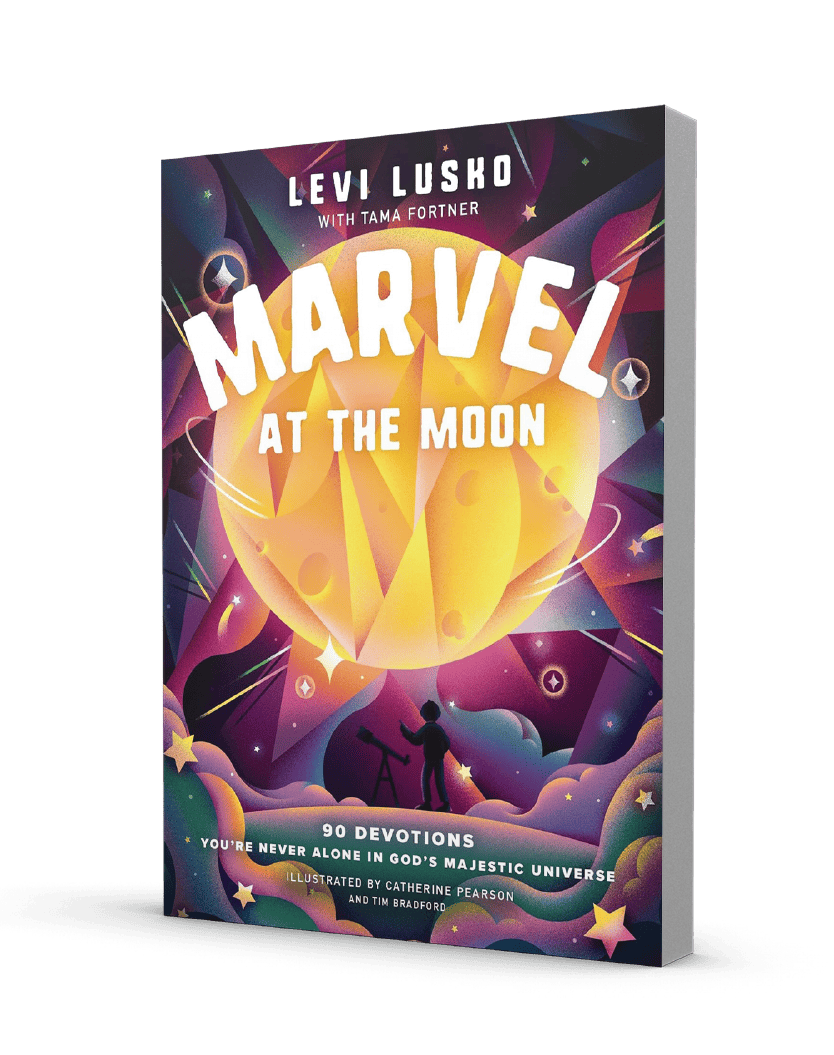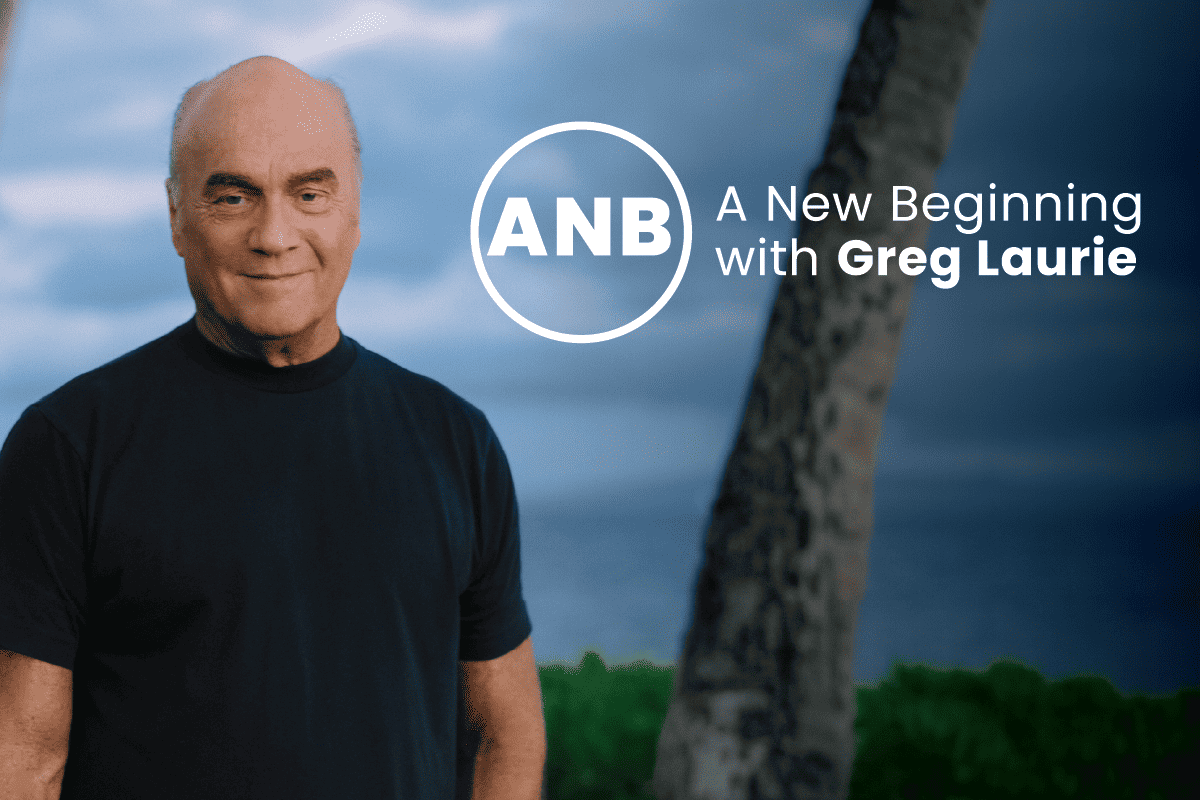Racial Reconciliation in America with Greg Laurie and Senator Tim Scott
Pastor Greg Laurie had an exclusive interview with Senator Tim Scott to talk about the tragic death of George Floyd and the biblical evidence of God’s love for all people. Senator Scott also talks about his experience growing up and becoming a politician and leader.
Watch below for an inspiring conversation:
Transcript: Greg Laurie and Tim Scott
Greg: Well Tim, thanks so much for being on with us. I should call you Senator Scott, but we are friends so sometimes I call you Tim. So I might go back and forth.
Tim: Well, I prefer Tim so that’s the good news.
Greg: Well Tim, thanks so much. You are so busy right now—honestly, I was amazed that you still were able to do this interview or you made time to do this interview with all that is going on, because literally you are in the eye of the storm as you’re taking point on a legislation package addressing our country’s policing system right now. And of course the whole national conversation is about the tragic death of George Floyd, and I think pretty much everyone who is sane would agree that that is a horrible injustice, and to describe it as a murder is not an understatement.
Tim: I agree.
Greg: To see this poor man not able to breathe and even calling out for his mother—and this has created a furor in the country. Legitimate protests. But then also it has escalated into riots and the destruction of property and even the loss of more life. Now the conversation has morphed into a new topic where people are calling for the abolishment of the police departments and changing the whole thing. Defunding the police. I read a quote on social media, Tim, where you made this statement: “We need order in the streets, and the easiest way to have that is to have a strong presence of character-driven law enforcement officers. What do you mean when you say character-driven law enforcement officers?”
Tim: I mean the exact opposite of Chauvin, the officer that murdered George Floyd. I mean that when I was a 16-year-old involved in a major car accident laying on the side of the road that a highway patrolman came up to me and told me my mother would be happy I was alive when I thought all she would have cared about was the vehicle because it was her first new car. He was teaching me a very valuable lesson. As a character-driven officer, he was teaching me that there is far more important things to your mother than the material possessions that she could live without, but she can’t live without her son.
And so there are a lot of officers out there that are doing their jobs, and we need those jobs and those folks that are doing their jobs to stand up and be counted because so often, and too often, what we hear about in the news recently are the tragedies brought about by people who seem to lack that character position. I would say that Romans 13 is another interesting chapter as it relates to policing and, frankly, having government officials with swords back in that day. Sounds like law enforcement officers to me. That just tells me that the importance of order and structure in a society can be see woven into the scriptures that we both so love.
Greg: That’s right. And you know God has established order. He has established government—like He has put you where you are. He has put me where I am. He has put those folks that serve us in law enforcement where they are, as well as those that serve in the military. You quoted Romans 13. I know a lot of people in law enforcement that are wonderful people. Full of integrity and do their jobs so well. But when you see an abuse or something that is a wrong, and with everyone filming everything and we all see it, it is very easy to characterize everyone that way. But I think we need to have a balance. I know you struggle with it because for instance if you say, “I support law enforcement,” and believe that they have been placed there by God then someone will say, “Well, what about racism?” Then if you say racism is real and I believe that racism is wrong and sinful, someone will come back and say, “Well, what about this?” They will come at it from another angle. Why don’t you talk about the police officers? I believe God has established law enforcement. I believe racism is a real problem in our country. I think we need to talk about it. I don’t know why you have to be in camp or the other. I know you yourself have been attacked for what you are trying to do with all of this.
Tim: Without any question, I always say Greg that the two are not mutually exclusive. I can be pro-law enforcement and pro-communities of color. You can be both. The question is how to we drive ourselves to a position where Galatians 3:28–29 that reminds me that we are both seeds of Abraham and adopted into the same family. There is no black, no white. There is no Jew. It doesn’t say “black” and “white” in the Bible. It says “Jew” and “Gentile.” “Male” and “female.”
Greg: The same issue.
Tim: The same exactly. From my perspective when you read that, it is impossible not to come to the conclusion that God is not colorblind. He actually loves diversity. He embraces diversity and we should too. We should treat other according to Matthew 22:39. We should treat each other as we would want to be treated. If we found ourselves literally living out Scripture, these would not be problems. But when we aren’t living in a place of a utopian society—I think that is called Heaven by the way—we’re going to face people who fall short. We should hold those people who fall short accountable to the level that is necessary to improve the outcome of the society. Sometimes that means being hard on people who abuse their power and authority. Sometimes it means being clear about the challenges that may be endemic to poverty or other issues. If we are going to treat the subject right, we have to view it not from my view up but from the Lord’s view down. That is the best way for us to make progress in this nation. Unfortunately, most of us are picking sides when, you have to remind me on this one, in Joshua where the angel comes down and the armies are there. “Are you on my side, or are you on their side?” He is like, “Dude, seriously? I am on the side of the Lord.”
Greg: That’s it.
Tim: Choose His side. I don’t mean to be overly religious because in my opinion this is not about religion. This is about a personal relationship that transformed the way I see others because it first transformed how I see myself. If I will take that new transformed self—who before I was saved I was filled with iniquity. Driven by sin. Driven by my instinctual luxuries or lusts so to speak. Now as a born-again believer, I am driven by the gospel of Jesus Christ. So I don’t look for a black solution or a white solution or a blue solution. I look for a God solution, and that means I have to start there, end there, and in the middle stay there.
Greg: That is the greatest statement. Not a white solution, not a black solution, not a blue solution, a God solution. You know I have kidded you. I remember the last time I interviewed you with Trey Gowdy I said, “Now Tim, are you sure you are not a preacher? You know the Word of God. You are applying it to your work. I love this so much about you because it’s all integrated together. But you mentioned the word saved. When did Tim Scott come into this relationship with God?
Tim: When I was 11 years old at Morris Street Baptist Church in Charleston, South Carolina, when I gave my life to the Lord, He became my Savior. He did not become my Lord until I was a freshman in college on a small football scholarship at Presbyterian College when I accepted Jesus Christ as my Lord and Savior. Not just my Savior. Because at 11 years old I knew I needed a Savior. I didn’t realize the delineation between a Savior and a Lord. A Lord is how you live your life. A Savior is where you go when it is over. I needed a Lord. I wanted an earthly father and I found in Scripture at 18 years old that Jesus Christ could lead me to my Heavenly Father, and I could read the Scripture to understand who I am in Christ. That became my journey.
That is one of the reasons why if you read my legislation, if you focus on my agenda, it is not about helping fill-in-the-blank people. It is not about conservatives. It is not about Republicans. It is not about blacks. I am a conservative. I am black. It is not about me. It can’t be about me. I have been called to serve a greater good and that greater good is helping people, the least of these first—Matthew 25 talks about certain groups of people that need help. You help widows, prisoners, the naked, the hungry. How did I treat Him, Jesus, is how I treat my fellow brothers and sisters. So if I do that in my legislative priorities I think the country is going to be better off. Maybe I am only called to reach 1/10th of the country or 1 percent of the country. Do your job. I might just be the toe. You are obviously the heart or the head. On the body of Christ, I am simply the toe or the finger or the pinky. Count me in though. I want to go all in for what the Lord has given me and when I do that I know that Matthew 25:21, “Well done, my good and faithful servant,” is what I will hear at the end.
But if it is all about me, if it is all about black people, if it is all about politicians, if it is all about conservatives, if it is all about Republicans, I don’t know that God looks down and says, “Man, I made you an African American alive and healthy in 2020 and the best you can do is just help yourself.” I don’t think that He looks at that and smiles. I think He wants every characteristic that He has given each of us to serve other people and to do so in a way that attracts people not to ourselves but attracts people to the God in us. To the Lord in the world. When that happens, I can walk up to a police officer who happens to white and love him because when my house was broken into when I was a kid, he responded. I can say to the police officer who happened to be white who pulled me over for driving while I was black and had no other reason for pulling me over—I can be ashamed of that. I can be righteously indignant to that. I can be both. I should be both. That is what we are missing. I am not on someone’s side. It is painful when you are a black, conservative Republican and you speak out when you see wrong on the conservative side and when you are wrong on the black side, you get attacked on both sides. Once again, from whence comes my strength? It comes from above.
Greg: That’s right. When you were a young man you mentioned that your father wasn’t there. I didn’t have a dad growing up. My mom was married and divorced seven times so I grew up in a fatherless home. I came to faith at 17, very close to your age.
Tim: Yeah. 18.
Greg: 18. So very close there. But a mentor stepped into your life. It is interesting. You were standing in line at Chick-Fil-A, and all you could afford were the French fries and a glass of water. But you had another motive for standing in line at Chick-Fil-A. You met a man that worked in a movie theater, who for the next four years impacted your life, and it turned out to be the last four years of his life. Tell us about the influence of a mentor in a young person’s life.
Tim: This is one of the beauties of God’s love. The agape form of love is unconditional and doesn’t see anything other than the purest form of love, and that is why pure love casts out all darkness. It is a form of light. For me that came in the form of a Chick-Fil-A operator that you just described when I was working at the movie theater after I stood in line because he had really cute girls working there and I wanted the French fries as well. He came down and brought me a Chick-Fil-A sandwich and started a conversation. This was 1981, ‘82. A white guy. I am a poor black kid. He started a conversation and one of the most important things he taught me over the next four years was that what you think is possible is way too limited. He really started weaving into my consciousness this notion that with God all things were possible. Then after he passed away I became far more familiar. He was 38 years old when he died. I was 19, and I realized that I had a responsibility to teach the lessons of John Moniz, the lessons he taught me about—having a job is a good thing but creating jobs is a better thing. Making an income will make you have a good quality of life, but having a profit gives you equity in this amazing country.
That really, for a poor kid who flunked out of high school as a freshman, was like manna from Heaven. It was just enough to sustain me. But it made me hungry for more. What I learned was Ephesians 3:20–21, that God is able to do exceeding abundantly above all that you ask or imagine. So at 19, I started dreaming about the craziest things like one day being governor of my state or of being mayor of my city. For some reason even then I knew I wanted to be in public service because one of the lessons of John was a poor kid could make a huge difference. You just have to find your path. So what I am trying to say, to people who may be listening to us, is that mentoring is transformative. Do not think that you need to have a black mentor to help a black kid. You need someone who loves unconditionally without any other motivation to make the kind of difference that leads a poor kid flunking out of high school, who failed civics the study of politics, to one day be a United States senator writing the laws for our country—because God has a sense of humor.
Greg: Wow. I think that man saw your potential and that God had a special plan for your life. I wonder, Tim this is probably not a question you want to answer, but would you ever consider running for the presidency?
Tim: Wow. That is a question. Maybe of my homeowner’s association, who knows? Greg, I have been watching you since the 1980s. ’83–’84, I think it was TBN or PTL. You were on live. You had longer hair than you have now. Down to your shoulders. I thought you were the coolest dude who loved the Lord, and who was doing what God had called him to do. My hope is that my future will look like your entire journey, which is, “I will do what God has called me to do.” It may be a higher office. Running for it. I may lose. Or it may be entering into the ministry and becoming an evangelist. Where I get to go around and share the gospel of Jesus Christ in the land of the living. Whatever He calls I hope I have ears to hear and a heart that is soft enough to respond.
Greg: Well just for the record, I think you would be an amazing president if that was God’s plan for you. I think you are an amazing evangelist too. A lot of options out there. I don’t want to take too much of your time but I would like to pray for you if that’d be OK.
Tim: Please. That’d be wonderful.
Greg: Father, I thank you for Senator Tim Scott. How that poor boy with an uncertain future with no father was touched by you and that man took an interest in him and how you have guided him and how he has served in this position that he is in. We know that you have a plan for him yet in the future. The thoughts that You have toward him are good and we pray that he will find that plan and walk in it. That you will protect him. That you will guide him. Give him the wisdom he needs as he navigates political issues, racial issues, social issues, and all issues. Our faith is in You, and our trust is in You. I thank you for him. Bless Senator Scott and his staff and use him for Your glory. I ask this in Jesus’ name. Amen.
Tim: Amen. Thank you so much, Pastor Greg. God bless you. Thank you for your ministry for all these years. I certainly am a fan, and I thank God that He called you when He did. And look what God did in your life. I got to say, it’s exciting to see and to learn from you even to this day. Bless you.
Greg: God bless you, senator.
For more, see Pastor Greg’s interview with Tim Scott and Trey Gowdy.

Did you pray with Pastor Greg?
To help you get started, we would love to send you a free Bible and other resources to help you grow in your faith.
Get Resources
In thanks for your gift . . .
Get your copy of Levi Lusko’s children’s devotional, Marvel at the Moon, before the month of April comes to a close. We will send it to you when you donate to Harvest Ministries today.
Support today!



